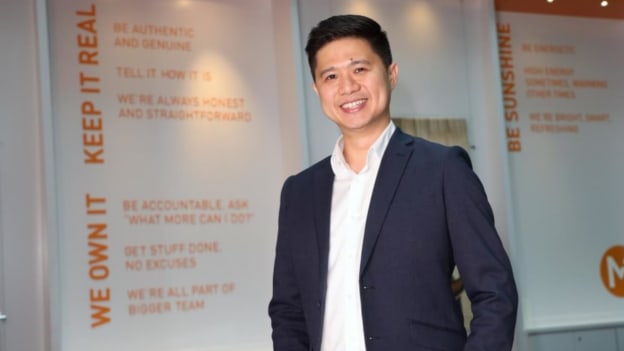Tackling the challenges of digital transformation: M1’s Gerald Lau

Transformation is the name of the game. The fourth industrial revolution, coupled with HR 4.0, has ushered in a new era with renewed focus on automation. AI and machine learning have changed the way we work. To better understand how businesses are transforming with the times, People Matters spoke with Gerald Lau, Deputy Director of Human Resources at M1, to know more:
Many companies across industries are in the midst of an accelerated digital transformation. This, of course, has come with varied challenges. With M1, what are the major challenges you have faced with your digital transformation journey?
The first challenge would be shortage of tech talent in niche areas such as 5G and emerging technologies while navigating our digital transformation during the pandemic. Stiff competition amongst tech companies for a similar talent pool made talent acquisition even more demanding. Existing job roles had to be identified and redesigned for our people to develop new capabilities.
Secondly, the process of a thorough business transformation to become a high-tech regional 5G connectivity solutions provider required a shift in mindset for our workforce. Our people had to adopt new and more agile ways of working, stay resilient through change, whilst being resourceful to adapt towards a faster pace of product development which was no easy feat.
What is M1’s end in mind with regards to the digital transformation efforts?
At M1, we began our transformation more than three years ago, with the goal of becoming a holistic and cutting-edge digital network operator.
In early 2021, we shifted from our legacy platform to a fully digital one, which allowed us to hyper-personalize our services. However, our core belief for digital transformation is the on-going journey of continuous iteration to develop creative solutions, deploy innovative products and seek new ways to create value in the marketplace. Unlike other organizational transformations that involve “doing digital”, M1’s aim has always focused on “Be Digital”.
Could you elaborate a bit on M1’s "buy, borrow or build" strategy to augment the workforce and bridge the talent gap.
At the end of 2021, a strategic decision was made to “buy” a majority share in IT services provider Glocomp Systems in Malaysia to bolster our enterprise digital services and drive regional expansion.
Other efforts included partnering with third-party providers to “borrow” talent in the tech space as well as to reskill and upskill our existing employees to “build” our own talent pool.
According to you, what is the importance of upskilling/reskilling employees, especially considering today’s dynamic and ever-evolving work landscape?
If the pandemic has taught us anything, it is that we need to be prepared for every possible situation, which is why succession planning became a part of our mammoth transformation efforts. We started by looking at critical positions that are hard to fill and that, if left vacant, would impact M1’s ability to meet its business goals. Once we identified these key roles, it was easier to pinpoint the types of training or mentorships necessary to develop mission critical skills.
We believe reskilling and upskilling should be an ongoing endeavor for longer-term business success. By planning ahead of time, businesses will be able to seamlessly close the skills gap in a fiercely competitive talent market. Beyond this, we know that offering employees training and growth opportunities is a great way to motivate our workforce, support their career aspirations and strengthen engagement.
What, in your opinion, does the future of the telecom sector and the future of work look like?
The future of the telecom sector must be a “people-first” sector to stay relevant in high-tech. Being “people-first” means creating a more “human” employment experience value proposition. One where employers take a long-term and sustainable approach to create a trusted alliance with their people. This is crucial for encouraging proactiveness and contribution of ideas, to create faster and deeper value for customers.
In short, people create ideas. These ideas lead to innovation, which is the lifeblood for any high-tech company. Modern HR empowers people managers with the tools and skills on how to best care for, inspire and motivate staff towards better business performance. As demand and supply for tech talent continues to fluctuate, companies must identify how to bridge existing employer-employee disconnects, ideally taking a data-driven approach to best focus limited resources.
At the end of the day, doing things right means being bold and taking a holistic approach – always being open to learning, sensing for feedback, and adjusting course along the way.















